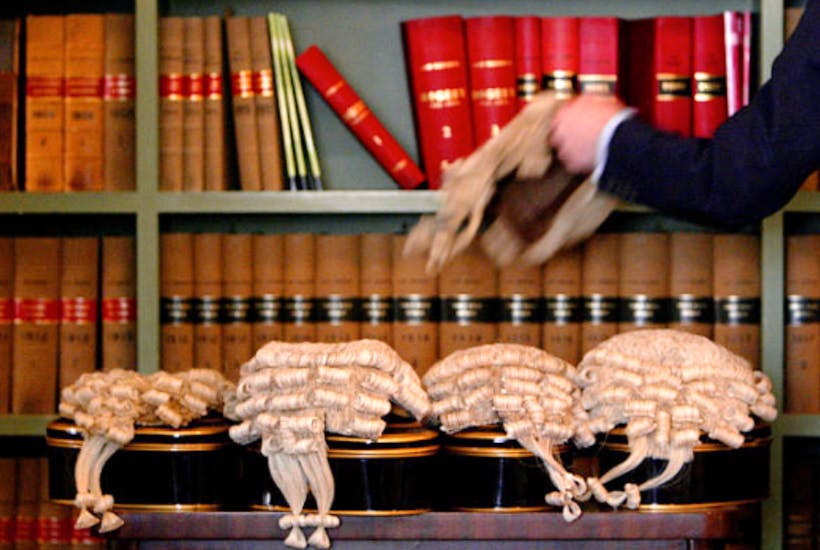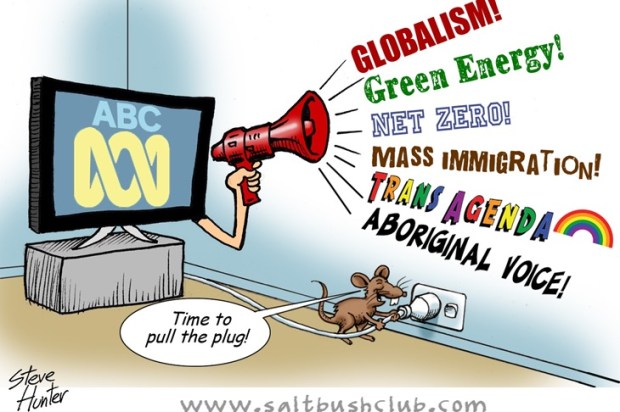A medium-sized but pious and shrill twitterstorm erupted shortly after the Victorian Bar published the results of its Council election last week. The scorn was directed at the fact that several women were ousted by the “Vote for Change” ticket, which picked up 16 of the 21 seats. The two most high-profile women to lose their spots were erstwhile president Wendy Harris QC, along with Kathleen Foley.
The vote commenced in late October and concluded on Tuesday, 10 November, a day after a Four Corners episode aired in which Foley offered a full and frank character assessment of Federal Attorney-General Christian Porter.
The ABC program was broadcast the best part of 13 days after the voting began, but that didn’t stop a number of journalists and gender equality campaigners from making their voices heard, arrogating to themselves a special knowledge of why Victorian barristers voted the way they did.
It was decreed that the demographics of the Victorian Bar were “problematic”; too many white men aged 50 or over and too few women, clear evidence of “institutional sexism”.
Jane Caro Tweeted that the result was a warning from the men at the bar not to complain about their misbehaviour, or else.
Georgie Dent, contributing editor of Women’s Agenda, tied Foley’s loss directly to the Four Corners report.
One of the most self-important declarations was from one woman with almost seven thousand followers declaring that Ruth Bader Ginsburg would not have succeeded in Australia.
The Guardian Australia, too, was claiming that multiple ‘observers’ were decrying the result, but could only produce one anonymous source who asserted that this was a conservative reaction to the progressives on the Council.
The implications are plain: the elections are demographically rigged against progressives; Foley was punished by barristers with stone-age mindsets; and that Australia is more misogynistic than the US in the 1950s, when Ginsburg first went to Harvard Law School. (For context, the US Supreme Court had its first female Justice in 1981; Ginsburg was the second, appointed in 1993. Australia’s first female High Court Justice was Mary Gaudron, appointed in 1987.)
First, it seems unlikely that Foley lost her spot as a result of Four Corners as most barristers would have already lodged their ballots by the time they saw it. Anyone suggesting otherwise is desperately grasping at straws, trying to cobble together a controversy that feeds into the grand narrative of institutional discrimination.
But the dominant idea has been the one suggesting that the bar is too male and stale and that they punished Foley for speaking out. Is the vote somehow illegitimate due to the bar’s lack of demographic similarity with the population at large? Can a case be mounted to suggest that sweeping changes must be made to the membership of the bar, cleaning out its older, trouser-clad population? After all, the legal community, though not perfectly progressive, has made up ground in this area recently: the High Court Chief Justice, Victorian Attorney-General, Solicitor-General, the most recent two Supreme Court Chief Justices, Director of Public Prosecutions and Chief Magistrate are all women.
The bar fails to keep up? Mounting that case is, to sugar-coat it, tricky.
Law schools in Australia are disproportionately female and have been for long enough to see them filter into the bar. Evidence is in the fact that the proportion of female barristers in Victoria has been climbing for each of the last 20 years and there is no sign that the trend will come to an end. Judicial appointments are generally becoming more female, too. The glass ceiling appears to have been long broken.
Well, perhaps progress has just had one of its heels caught in a grate. Each barrister has a vote in the Bar Council elections and they voted a female silk to be president last time around, before she was mercilessly booted. This time around they elected nine women to the council, five of whom make up the six-member executive. The result is that women are disproportionately overrepresented on the Victorian Bar Council.
Have sexist barristers punished Foley, then? There doesn’t seem to be much evidence in favour of that proposition. The staunch sexists barely had time after the programme’s airing to splutter into their glasses of port before the vote closed. More likely that she was voted in and then voted out, which tends to happen in democratic votes. Some of the troglodytes who voted Foley out probably voted for her in the first place.
It’s equally short-sighted to suggest that the skewed demographics of barristers provide a reason to dispense with voting and have progressivism externally forced on barristers. The bar does not exist to represent the wider community or advance a political agenda, but to provide representation for litigants in court. The Council represents the barristers’ interests. There’s no reason for them to adopt progressive politics or cultural change if it’s not what they want.
Occam’s Razor should make one look unfavourably on the thought that what turned this election was structural misogyny. The simplest explanation is most often the best. Far more plausible is the idea that, having been elected, these members simply failed to do much of a good job. The barristers know far better how to direct their own barbecue than the activists who’ve just now popped their heads over the fence for a second to tell them how to cook the steaks. The barristers have made their opinions abundantly clear; we should tread carefully before wading in with such self-assurance.
Got something to add? Join the discussion and comment below.
Get 10 issues for just $10
Subscribe to The Spectator Australia today for the next 10 magazine issues, plus full online access, for just $10.


























Comments
Don't miss out
Join the conversation with other Spectator Australia readers. Subscribe to leave a comment.
SUBSCRIBEAlready a subscriber? Log in